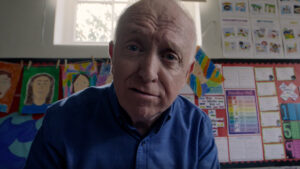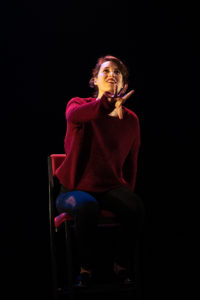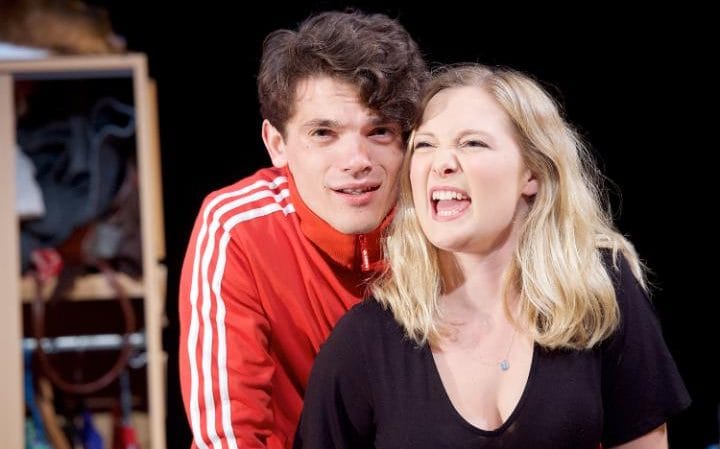Richard Blackwood exceptional in Typical
★★★★★

Typical offers us a day in the life of an ordinary man, a typical man, but the question is, is he a typical black man?
He gets up and gets dressed. He’s looking forward to the weekend, when he’ll see his boys. He fancies a night out so he goes to a disco. By the end he’s dying in a police station. Not so typical, but in Ryan Calais Cameron‘s play, ‘typical’ has many meanings and one is when they stereotype a black man .
It’s a one-man play and a huge burden is placed on the Richard Blackwood’s shoulders. There’s no set. He mimes, he mimics other characters, he speaks constantly in a stream of consciousness. The good news is that Mr Blackwood doesn’t give a typical performance, what he does is exceptional in the extreme.
Ryan Calais Cameron has written a poetic drama and Mr Blackwood is right on top of the rhythm of it. There’s a real love of language here, and there are joyful plays on words that he effortlessly gets his tongue round. For example, he talks of ‘sleep in the corner of the cornea’. He says, ‘Look here, I cook here, don’t need no damn book here’ and ‘I want to be inside the rave raving, instead of outside the rave, ranting and raving’.
There are many funny moments, especially when Richard Blackwood mimics the people he encounters. I laughed out loud as he confronted a police officer. The officer is saying, ‘Do you want to come to the station’. Our guy is saying ‘Do you want to take my statement’ and the two begin interrupting as each tries to have his say. Do you want to.. Do you.. in swift repartee, as all the while the tension rises.
Anastasia Osei-Kuffour directed the original play at the Soho Theatre and this screen version is filmed there so it retains a sense of theatre while making good use of close ups and quick cutting to different camera angles.
Our protagonist is quite an ordinary man but also very likeable. He can look after himself but he avoids trouble. When he experiences typical everyday racism, systemic racism if you like, he doesn’t rise to it, he even questions whether there is racist intent. Is the doorman making him wait because he’s black or simply because the place is full.
He still doesn’t avoid a serious racist attack. In the hospital a head injury has left him confused but the staff and police see what they want to see- a typical man- perhaps a typical black man- on drugs or drunk and frighteningly aggressive. The meaning of ‘typical’ moves from ‘everyday’ to ‘predictable’ to ‘expected’.
Once he’s arrested, the police beat him in the van. It is perhaps typical racist police behaviour or at least it’s nothing like as rare as it should be. The depictions of the beatings invite a visceral response, again all mimed by Mr Blackwood..
The police let him die. We see him die, before our eyes in deep close up, choking on his own blood,. It is shocking, horrific and deeply upsetting.
This is an imagined version of what happened, not to a typical black person but an actual man Christopher Alder in 1999. The last minutes of his life were recorded on CCTV at the police station. It led to a verdict of unlawful killing and an apology from the police force but no one was punished. It’s part of a pattern that sees a disproportionate number of black people stopped and searched, arrested, and dying in custody.
While that is important and Typical rightly brings attention to this outrage, it is important to say that this is a well acted, well constructed drama that uses language, humour and emotional empathy, to make us feel the pain of one man’s tragic end.
Typical is available to stream on demand from sohotheatreondemand
Click here to watch this review on the YouTube channel One Minute Theatre Reviews


